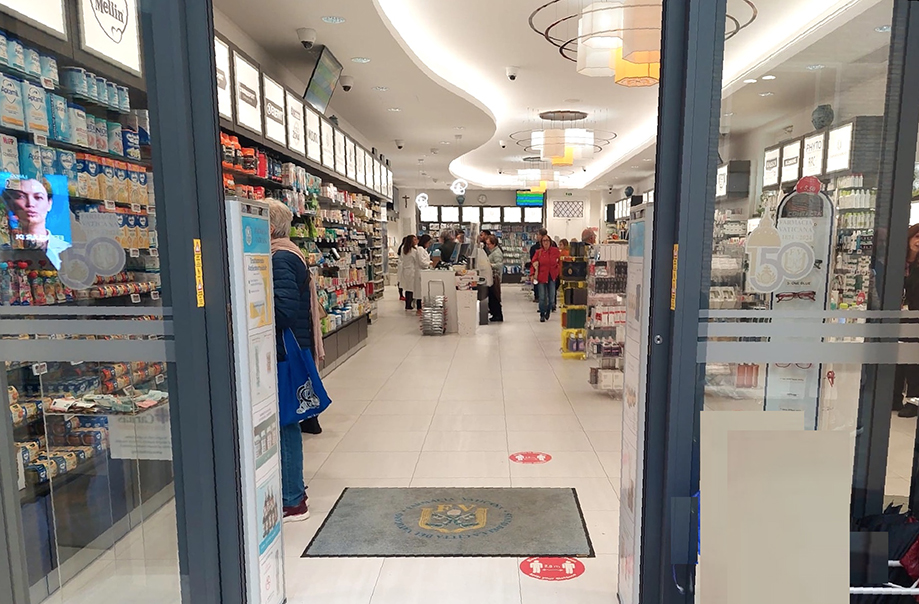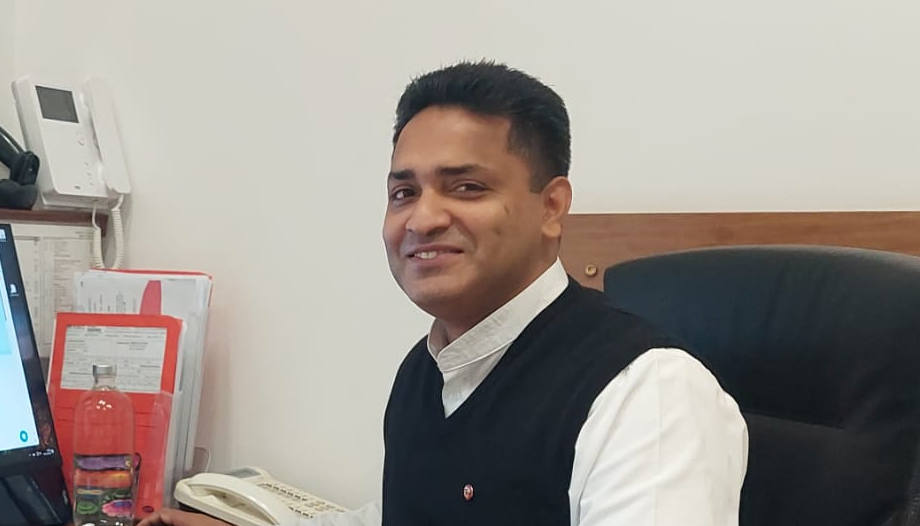The year 2024 will mark the 150th anniversary of the founding of the Vatican PharmacyThe pharmacy is the busiest in the world, with more than 2,000 customers a day. However, thanks to the modernization achieved with robotization and computerization, the pharmacy is able to serve everyone without queuing.
Thanks also to its 23 professional pharmacists who staff the counters with great kindness and dedication and who are part of the pharmacy's staff of almost 70 employees.
As the 150th anniversary of this institution based within the walls of Vatican City State approaches, Omnes was able to interview the pharmacy's director, Brother Binish Mulackal, prior of the Brothers of St. John of God community and a native of Kerala, India.
Brother Binish, tell us a little about how the Vatican Pharmacy came about, if I am not mistaken it was when Pope Pius IX was a "prisoner" in the Vatican, wasn't it?
-After the capture of Rome in 1870, the Vatican sought the autonomy of the Holy Father and, therefore, a pharmaceutical and sanitary service. The State contacted the Fattebenefratelli hospital of the Order of St. John of God in Rome on behalf of Pius IX in 1874, and thus the pharmacy was founded during the so-called "Roman Question", initially as an outpatient clinic.
The pharmacy was founded on March 4, 1874, when in Fattebenefratelli we Hospitallers placed ourselves at the Pope's disposal and the first pharmacists began to serve in the courtyard of St. Damasus, arriving in the morning and returning in the afternoon.
And when were they installed in the Vatican?
-It was in 1890, when they requested the presence of the community within the Vatican City. However, the Pharmacy belongs to the State, to the GovernatoratoWe are obliged to manage it by virtue of an agreement as a Hospitaller Order.
Are you religious? How did you get here, to the Pharmacy?
-Yes, I am a religious of the Order of St. John of God. Many confreres have worked during these 150 years to direct it. In 2007, as part of the renewal of the community, they asked the Province of India to send friars to lead it.
Why a pharmacy inside the Vatican when there are so many in Rome?
-It was born as a service to the people who live in the Vatican State and also for those who come from outside. It is a place where the sick and needy are listened to and advice is given. Today, with the big pharmacy chains, the prices of medicines have become cheaper, so our aim is not necessarily to be affordable, although the economic aspect is important.
When Pope Francis received you at the Apostolic Palace, what did he ask of you?
-In its speechThe Holy Father asked us to give "a supplement of charity", to listen and to listen to all those who come to us. "The sick often need to be listened to. Sometimes it seems boring," he told us, "but the person who speaks feels a caress from God through you.
How many people pass through the pharmacy each day?
-The average is more than a thousand people a day, we have recovered a number of customers similar to what we had before covid. Compared to Italy, the price of medicines is 12% lower, and it varies for other products. There are also cosmetics and perfumes that those who come can buy.
Do you have an online sales service?
-No, we don't have an online service as such, but we have been doing an online service for more than 20 years. remote shipments, also by telephone. What is essential is that the patient always sends us the prescription. And we only send medicines that are not available in Italy. Of course we comply with European EMA and American FDA regulations.
Apart from the Hospitaller Order of St. John of God, who works here?
-We have been working in the health field since 1550, so not only with pharmacies, but also with hospitals and various facilities. Today, a community of us has been living here since 1892, and in this building since 1932, after the Lateran Pacts. Today we are seven confreres here, two of them nurses, who also attend the Holy Father's audiences and visits to Rome. We also cover the night shift at the Pharmacy.

As a mendicant religious order, that is, not living in monastic seclusion, do you have a community life?
-We have all the spiritual activity and it starts with Mass in the morning, and then there is the daily work. Above all, we are religious, we live in community and our mission is to serve the Church.
During the Covid pandemic you played a special role...
-Yes, and a lot of work, starting with the shortage of medical supplies, having to supply the entire state. The Holy See also received several donations and we also had to manage them externally. Even for the vaccines, because we made the arrangements with the pharmaceutical companies. The experience with the vaccine was so positive that we returned to normality.
Is there reason to be proud of providing this service?
-It is enough to think of a single needy person to whom we give the attention he/she needs. We collaborate with the Apostolic Elemosineria. We make donations for Ukraine, Venezuela and many other difficult situations in the world.
There have been several saints in your order, right?
-In addition to the founder, St. Juan de DiosThe other Hospitaller saints raised to the honor of the altars were Riccardo Pampuri, Benedetto Menni and Giovanni Grande. And the Blessed Eustachio Kugler, José Olallo Valdés, as well as the seventy-one martyrs of the Spanish Civil War (Braulio María Corres Díaz de Cerio, Federico Rubio Álvarez and 69 companions).











